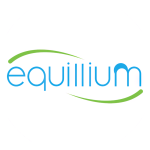Welcome to our dedicated page for Equillium news (Ticker: EQ), a resource for investors and traders seeking the latest updates and insights on Equillium stock.
Equillium, Inc. (Nasdaq: EQ) is a La Jolla, California–based clinical-stage biotechnology company that publicly describes its focus as developing novel therapies for severe autoimmune and inflammatory disorders. News about Equillium often centers on the progress of its lead candidate EQ504, an investigational aryl hydrocarbon receptor (AhR) modulator, and on corporate actions that support its development strategy.
Readers of this EQ news page can follow company announcements on clinical and preclinical plans for EQ504, including preparations for Phase 1 studies in ulcerative colitis and related gastrointestinal conditions, as well as potential applications in inflammatory lung or pulmonary diseases. Equillium’s press releases also highlight scientific and translational updates, such as key opinion leader events discussing AhR modulation, intestinal inflammation and the unmet medical need in ulcerative colitis.
In addition to pipeline news, Equillium regularly reports on financing transactions like private placements and at-the-market offerings, which it links to funding the development of EQ504 and extending its operating runway. Corporate governance and leadership updates, including changes in board composition, committee membership and senior roles, are disclosed through both SEC filings and news releases.
Another recurring topic in Equillium’s news flow is its cryptocurrency treasury reserve strategy, which the company has described as part of its broader financial and growth objectives. Updates in this area appear alongside information on cash resources, investment policy changes and strategic priorities.
Investors and observers can use this news feed to monitor Equillium’s clinical plans, scientific positioning around AhR modulation, capital-raising activities, Nasdaq listing developments and treasury strategy, all of which shape the company’s path as a clinical-stage biotech focused on immuno-inflammatory diseases.
Summary not available.
Summary not available.
Summary not available.
Summary not available.
Summary not available.
Summary not available.
Summary not available.
Summary not available.
Equillium, Inc. (NASDAQ: EQ) presented positive results from its EQUATE study at the 49th Annual Meeting of the European Society for Blood and Marrow Transplantation. The study analyzed the use of itolizumab combined with systemic corticosteroids in treating acute graft-versus-host disease (aGVHD). The findings showed significant clinical responses and improved progression-free survival rates over one year. Itolizumab demonstrated a favorable safety profile and may reduce corticosteroid usage by 99% within six months. Following this data, the pivotal Phase 3 EQUATOR study of itolizumab is underway, targeting first-line treatment of aGVHD, a condition with no approved first-line therapies.
Equillium, Inc. (Nasdaq: EQ) reported a cash balance of $71.0 million at the end of 2022, ensuring funding through 2025. The company acquired Bioniz Therapeutics, enhancing its pipeline with EQ101 and EQ102, both in clinical trials.
Equillium received $26.4 million upfront from a partnership with Ono Pharmaceutical, with an additional $139 million in potential milestone payments. Revenue for Q4 2022 reached $15.8 million, a significant increase from zero in 2021. However, the net loss for the full year was $62.4 million, up from $39.1 million in 2021. The company anticipates key clinical data releases in the second half of 2023.

